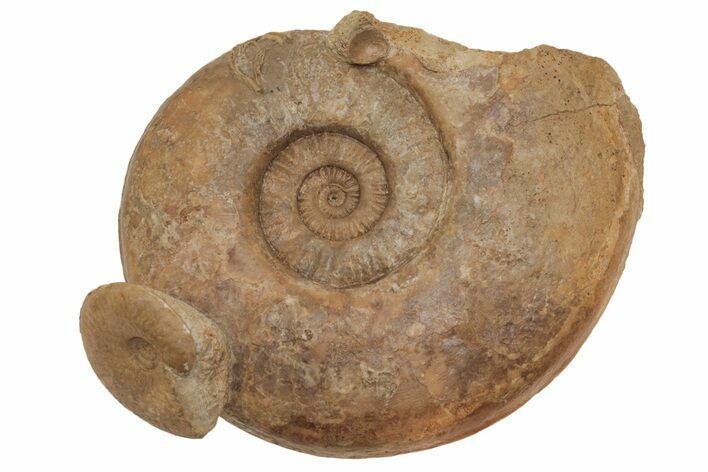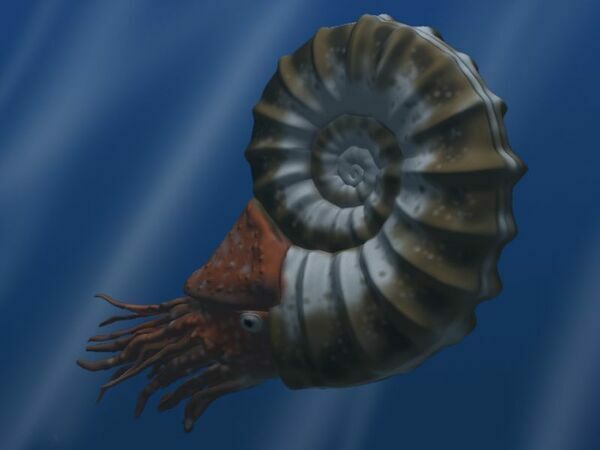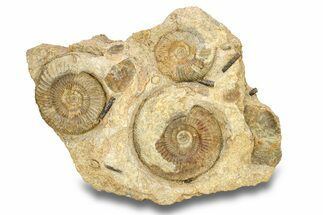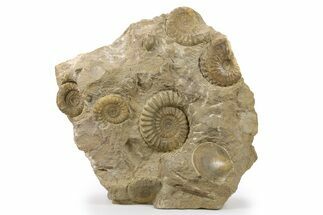Two Jurassic Ammonite Fossils - Dorset, England
This is a 5.6" wide, polished ammonite (Euhoploceras modestum) fossil from Dorset, England. It is Lower Jurassic in age, or approximately 160 million years old. The larger ammonite is accompanied by a smaller Darellia poltia that is 1.8" wide. It is prepped completely free of the rock it was found in and comes with a display stand.
About Ammonites
Ammonites were ancient marine cephalopods, similar to today's squids and octopuses, but with a defining feature: their distinctive, tightly coiled spiral shells. These shells, resembling those of modern nautiluses, served as both a protective home and a buoyancy aid, allowing ammonites to navigate the prehistoric seas with ease. First emerging around 240 million years ago in the Triassic Period, ammonites thrived for over 175 million years, adapting through numerous forms and sizes. As predatory creatures, they likely fed on smaller marine organisms, using their tentacles to capture prey. However, their long reign came to an end 65 million years ago at the close of the Cretaceous, coinciding with the mass extinction event that also eliminated the dinosaurs.
Ammonites were ancient marine cephalopods, similar to today's squids and octopuses, but with a defining feature: their distinctive, tightly coiled spiral shells. These shells, resembling those of modern nautiluses, served as both a protective home and a buoyancy aid, allowing ammonites to navigate the prehistoric seas with ease. First emerging around 240 million years ago in the Triassic Period, ammonites thrived for over 175 million years, adapting through numerous forms and sizes. As predatory creatures, they likely fed on smaller marine organisms, using their tentacles to capture prey. However, their long reign came to an end 65 million years ago at the close of the Cretaceous, coinciding with the mass extinction event that also eliminated the dinosaurs.
$445
SPECIES
Euhoploceras (Sonninia) modestum & Darellia polita
AGE
LOCATION
Cock Road Farm, Sherborne, Dorset, England
FORMATION
Inferior Oolite, Laeviuscula Zone
SIZE
Euhoploceras Ammonite: 5.6" wide, Entire specimen: 5.6 x 4.7"
CATEGORY
SUB CATEGORY
ITEM
#216645
We guarantee the authenticity of all of our specimens.
 Reviews
Reviews












